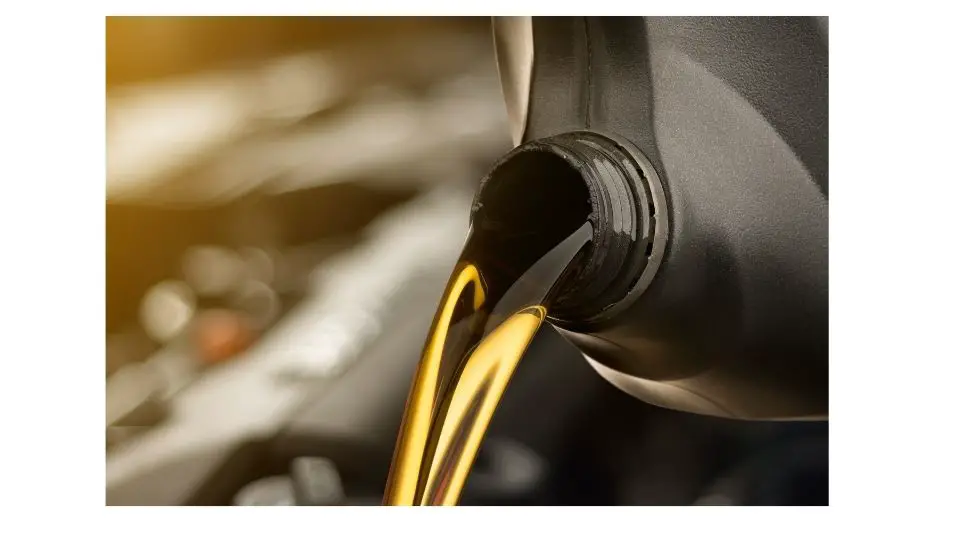Internal Combustion Engines are a marvel of engineering, with all their moving parts consisting of Pistons, Camshafts, Rods, Bearings, and many other more components.
With all these moving parts working in harmony, they need to be lubricated well in order to reduce friction between these parts, if not done, the engine can have permanent damage, such as lifter damage, cam bearing noise oil in Spark Plugs, which can both lead to the engine seizing as the metal parts begin to grind against each other.
With that being said, there are many types of engine oil, you may have seen different numbers and letters on engine oils such as 5w30 or 5w40, these codes refer to the grade of engine oil, or in simpler terms, the viscosity grade, which determines the viscosity of the engine oil as there are many varying viscosities of engine oil, ranging from thin to thick oils.
Different engines use different grades of oil. Engines, such as the performance ones, which have a higher operating temperature, generally use thicker oils as it tends to become increasingly thin as the temperature of the engine rises, and the oil does its job better when it is still relatively thick as opposed to a lower viscosity oil.
The lower the viscosity, the poorer it performs as its ability to lube the components decreases. An oil’s resistance to thinning at hotter temperatures is known as the viscosity index.
Engine oil must also not be very thick, as in lower temperatures, the oil can become excessively thick and the engine will become difficult to start as the crankshaft is partly submerged in oil.
Newer synthetic oils are designed with this is in mind, so they flow better even in low temperatures. Fully synthetic oils are specifically made to withstand more strenuous operating conditions and higher operation temperatures which can be found in sports cars such as the Ford GT or pickup trucks that tow heavy loads such as the Silverado.
Can you mix 5w30 with 5w40
the answer is yes, but there is a catch. Cars mostly have the recommended oil from the manufacturer, which has many factors when chosen:
1. Climate
5w30 oil is meant for slightly colder climates, although it would perform perfectly fine on an average summer day, a trip to a very hot place like the desert would be slightly detrimental as the oil would begin to thin at such extreme temperatures, it would be fine for short term use, but over the years the engine might wear out quicker due to the increased heat and thinner oil. 5w40 performs better at higher temperatures, and cars that are shipped to countries with hotter climates are generally recommended to have 5w40.
2. Type of engine
The type of oil also depends on what kind of engine the car has, cars that have forced induction such as a turbocharger or supercharger, run at slightly higher temperatures than a naturally aspirated engine, which is why performance cars that utilize forced induction use 5w40 oils as they are far more effective at higher temperatures as opposed to 5w30 which thins at high temperatures easily.
3. Type of vehicle
Heavy-Duty vehicles such as commercial pickup trucks and Big Rigs usually have a very viscous oil as combustion in a diesel engine is at a much higher compression ratio than gasoline engines due to the immense torque they produce, which puts the internals of the engine at more stress.
As engines age and become older, they become weaker and less efficient as seals around the engine wear out and begin to leak, special synthetic oils with additives are used in older cars, which can help extend the life of these rubber seals, prolonging the engines life in turn, however, an engine which is leaking profusely might need new seals along with general car maintenance such as oil filters to prevent any major damage.
Neglecting to change the oil of your car can lead to a build-up of sludge in the crankshaft area of the engine, sludge is the product of old, oxidized motor oil, partially burned fuel, and soot.
Usually, sludge is taken away by the engine oil when drained, but when the oil is not changed for a very long time, it begins to deposit in the crankshaft case and is very expensive to get removed as the engine has to be disassembled.
Sludge can cause the motor to not receive lubrication, which will cause a lot of damage or cause the engine to seize. If you work on your car by yourself, it can be easy to get confused and use the wrong engine oil, which can cause a lot of damage.
But there is a way to stay sure of the type of oil you use is correct, refer to your cars owner’s manual and check for the recommended oil grade to be used, additionally, when purchasing engine oil, look for the SAE (Society of Automotive Engineers) viscosity number, to be sure you are buying good quality oil that has been tested.
Conclusion on Mixing 5W40 and 5W30
you can mix 5w30 with 5w40, you won’t notice much of a difference in regular temperatures, but if you have a high-end, luxury car or performance car, it might be a good idea to use the only 5w40, even in emergencies, as it might cause inconsistencies especially under load which can lead to unwanted damage.

Robert Anderson is a world class motorhead who rebuilt his first carb at age 10, his first engine at age 15, and completed his first full hotrod build when he was just 18! Previously, he has ran a part warehouse, delivered pizzas, and managed the service department for a $20 million/year revenue dealership. Robert knows cars like few others and he is passionate about sharing his knowledge.

